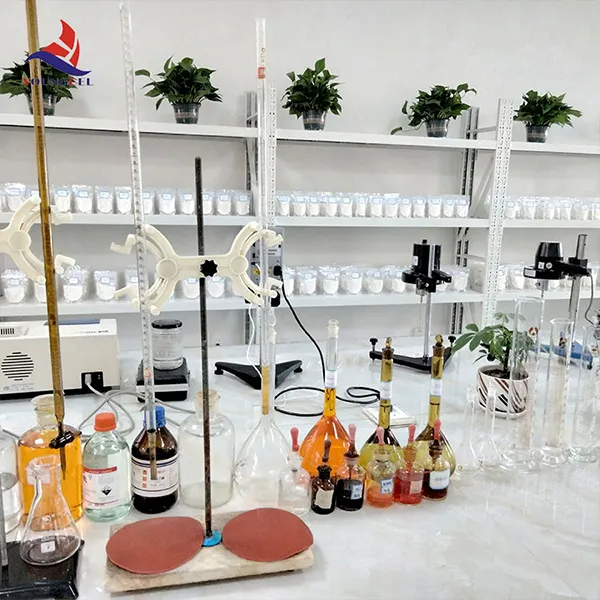Construction Gypsum Powder An Essential Ingredient in Modern Building Materials
Gypsum, a naturally occurring mineral, has been used for centuries in construction. In its powdered form, known as construction gypsum powder, it has gained significant popularity due to its versatility, environmental benefits, and contribution to sustainable building practices. This article explores the properties, uses, and advantages of construction gypsum powder in modern construction.
Properties of Construction Gypsum Powder
Construction gypsum powder is primarily composed of calcium sulfate dihydrate (CaSO4·2H2O). When heated to a high temperature, it undergoes a dehydration process to become calcined gypsum or plaster of Paris (CaSO4·0.5H2O). This transformation enhances its binding properties and makes it easily moldable when mixed with water. Once applied, it rehydrates and sets, forming a durable surface that can withstand various conditions.
One of the most notable characteristics of construction gypsum powder is its fire-resistant nature. It does not combust and can provide a level of safety in building materials. Additionally, gypsum is non-toxic, making it a safer option compared to some synthetic alternatives used in construction.
Uses of Construction Gypsum Powder
The applications of construction gypsum powder are extensive. It is primarily used in the manufacturing of drywall, which has become a standard for interior wall and ceiling construction. Drywall made from gypsum is lightweight, easy to install, and provides a smooth surface for painting and finishing. Furthermore, gypsum board contributes to energy efficiency and soundproofing, enhancing the overall comfort of living and working spaces.
construction gypsum powder

Apart from drywall, construction gypsum powder is also used in plastering walls. Gypsum plaster is favored for its quick-setting properties and smooth finish. It can be easily applied to a variety of surfaces, including bricks, concrete, and wood, ensuring excellent adhesion and a professional result. Moreover, gypsum is used in various decorative elements, including moldings and cornices, allowing for intricate designs and customizable aesthetics.
Another significant application is in the production of concrete. Gypsum serves as a set retardant in cement production, controlling the hydration process and enhancing the strength of the final product. This makes it an indispensable ingredient in the manufacture of concrete blocks and other precast products.
Environmental Benefits and Sustainability
In today's world, the construction industry is increasingly focused on sustainability and reducing environmental impact. Construction gypsum powder is often sourced from by-products of industrial processes, such as flue gas desulfurization, thereby reducing waste and promoting recycling. This makes it a more eco-friendly alternative to many conventional building materials.
Additionally, gypsum has a low embodied energy, meaning that it requires less energy to produce compared to other materials. Its ability to improve energy efficiency in buildings contributes to a reduction in overall carbon emissions, further supporting sustainable construction practices.
Conclusion
Construction gypsum powder plays a vital role in modern construction, providing versatile, safe, and environmentally friendly building solutions. Its properties make it suitable for a variety of applications, from drywall and plaster to concrete additives. As the industry moves towards more sustainable practices, the importance of construction gypsum powder will continue to grow, solidifying its position as a cornerstone of modern building materials. Choosing gypsum not only enhances the quality and durability of construction projects but also supports the overarching goal of creating a more sustainable future.






